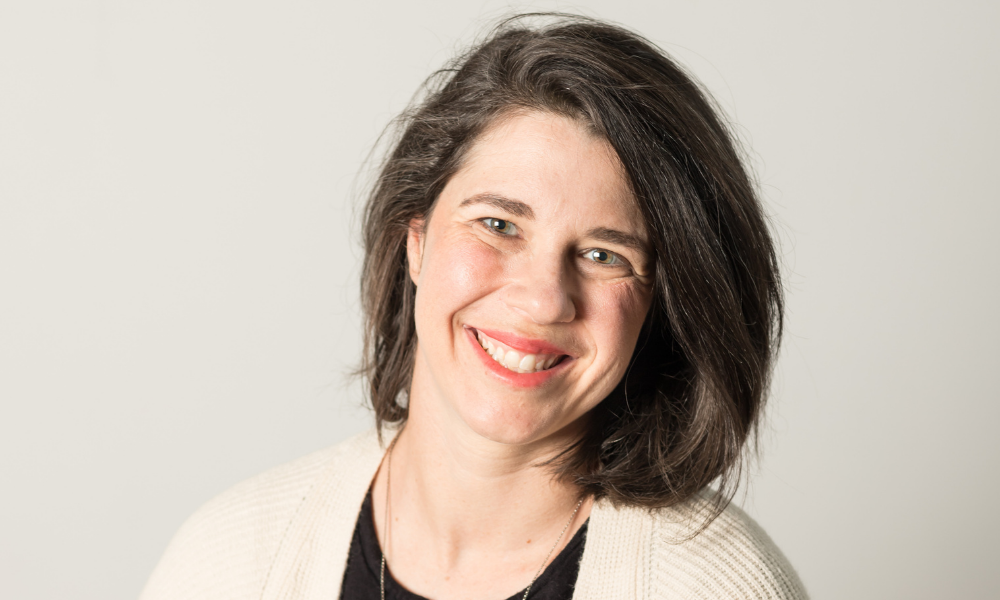Kara Hardin works with legal profession to create achievement 'without dread, anxiety and doubt'

As a former corporate and securities lawyer at a top Canadian firm, Kara Hardin understands the pressure for perfection. That’s why Hardin, now a registered psychotherapist and mental health educator feels that she can work with those in “high performance” professions to help them find a better balance in the relationship between their work and the rest of their lives.
“So many people were coming through my door all had challenges of a similar nature – perfectionism, imposter syndrome, feelings of inadequacy, anxiety and depression,” says Hardin, who has a master’s degree in counselling psychology from the University of St. Thomas in Minnesota and a Juris Doctor from the University of Toronto’s faculty of law.
“The challenge for me was to help these individuals understand ‘what does high achievement look like without and dread, anxiety and doubt?” Hardin adds that those who seek a career in high-performance professions such as law are attracted to that profession for the very reasons these mental health challenges can crop up.
Hardin says that studies done pre-COVID have shown that about a quarter of lawyers suffer from depression or anxiety. A more recent American Bar Association survey indicates that about 75 per cent of lawyers polled said their participation in the law negatively affected their mental health.
“We know a high number of high achievers feel that they struggle, and that they feel like there’s something wrong with them for feeling that struggle – that something is wrong with them,” she says.
Part of Hardin’s message is that we “don’t want to get rid of the part of us that wants to clean underneath the stove on a Thursday night, but you also don’t want to beat yourself up for being someone that cleans beneath their stove on a Thursday night.”
Professions such as law can attract people who won’t necessarily prioritize a well-rounded life or mental health. Law, for example, is a profession that can be highly unpredictable and doesn’t offer much say as to when the work will ramp up, as it is often at the discretion of others.
“There is always going to be a situation when a big deal explodes with work and it conflicts with, say, your wedding anniversary,” she says. “The question is how to you respond to that dilemma in a way that works for you.”
Hardin, who offers her services to law firms and other high-performance sectors, says that as she practiced law, she realized that she was becoming more interested in “how to practice” than the legal work itself. So, she decided to get mental health training to help professionals, including lawyers, continue to function at a high level while taking care of their mental health, physical and emotional needs.
“Lawyers are often taught to preclude the development of mental health as a basic competency of practice that is needed for professional growth,” she says. “Almost every lawyer I know has this formula they follow what is the standard of care? What is the standard of production? What is the standard of output? How do I measure up?” And if lawyers don’t feel they measure up, they deem themselves a failure.
But with the way the legal system centres around the concept of productivity and billable hours, Hardin says, “how could you ever feel like you were adequate?” And even when achieving these high standards, Hardin says a common reaction is, “why don’t I feel satisfied?”
The trick, and what Hardin tries to get across in her group and individual sessions, is helping lawyers and other professionals better understand what is happening and help them better interact with the world in a healthier way to break that cycle.
Hardin points out that often lawyers in these situations feel that they are the only ones who are feeling what they are feeling – “you think you are the only one that has suffered this way.” By being part of sessions such as the one Hardin offers, the realization that others feel the same way can be a breakthrough in understanding how to achieve a better work-life balance.
Hardin says law firms now realize that addressing the mental health and work-life balance issues with their staff is crucial to success. “I am seeing far more engagement of law firms on these issues, and some very real dialogue, and money going towards addressing them.”
As COVID-19 lingers, with all the stressors it has brought, Hardin says employers realize there is a great war for finding and retaining talent as high performers recognize that there are different career pathways they could explore.
“This unprecedented talent war has brought about for a realization that there are as many different pathways to success and mental wellbeing as there are people in this world,” she says. And employers realize this expansion of possibility has been revolutionary.
‘If people who have felt for years that they can only succeed by looking and acting a certain way, this expansion of possibility could lead to a huge reckoning.”










